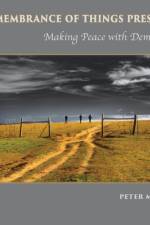av Peter Maeck
315,-
NEW SECOND EDITION-REVISED MATERIAL MURDER IS ACADEMIC When revered Ivy League college president Dr. Amos Loeb is murdered, prime suspicion falls upon an alumnus who has raged against the president's admission of women to this historically all-male institution. Loeb, as a survivor of Auschwitz, a renowned scholar, and a heroic humanitarian seemed a very unlikely target for assassination. But as his long-concealed personal misdeeds come to light, he is revealed to have been a far from perfect man, imperfect enough to suggest that several others in addition to the disgruntled alumnus could very well have wanted him dead. The Loeb murder is baffling the local police when a journalist arrives in town to pursue his own investigation toward writing an account of the affair. This journalist, a would-be Truman Capote writing a would-be In Cold Blood, produces the book Zänker in which he is both a focal character and narrator of events. As the former, he is less an objective reporter than an active player in the college community's combustible social life, sparking interpersonal tensions before ultimately solving the case. Editorial Reviews"Set in a beautifully rendered northern Vermont college town, this terrific page-turner centers on the murder of the school's president, an academic superstar seemingly beyond reproach. But was he really? The characters are a vivid if unsettling mix of locals, academics, and townsfolk. One of them is obsessed with the Holocaust. Another is obsessed with homicide...committing one, that is. So curl up and get started. Just make sure all the doors are locked."-Sebastian Stuart, author of The Hour Between, The Mentor, To the Manor Dead, Dead by Any Other Name, and What Wasn't I Thinking? Excerpt The next day's edition of The New York Times reported the ghastly assault upon Dr. Amos Loeb, the president of Ballyvaughan College. Under the headline "Heroic College President Victim of Knife Attack" was an account of the dreadful deed and a sampling of community reaction to it. The deed was not a mere stabbing, it was the severing, apparently by intention, of the victim's male member.



